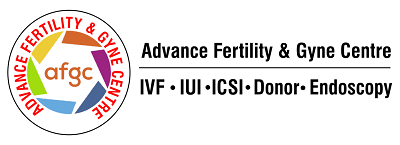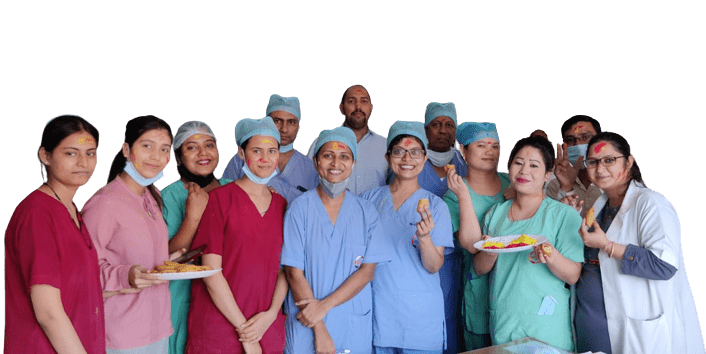Achieving pregnancy and carrying it to full term can be challenging for many women. If you’re facing similar issues, there’s promising news. Advanced fertility treatments such as in vitro fertilisation (IVF) with donor eggs in India offer new hope. IVF technology is constantly improving, leading to higher success rates and enabling many couples to experience the joys of parenthood.
IVF with donor eggs may be a viable alternative in cases when there are concerns about egg quality. This method greatly increases the likelihood of conception and successfully carrying a pregnancy to term. Furthermore, the growing accessibility of this treatment has resulted in a more competitive donor egg IVF cost, making it a more feasible option for a wider range of couples.
If you’re considering IVF using a donor egg, this comprehensive guide will provide essential insights into the process and the circumstances under which it may be a suitable option. You’ll also find recommendations for sourcing donor eggs in India, ensuring the best possible treatment and care.
When should you consider IVF with a donor egg in India?
Donor eggs combined with IVF offer a ray of hope for many women. Here are some key situations where this option might be right for you:
For non-menopausal women:
-
Limited ovarian reserve –
If your ovaries have a reduced egg count for your age, using your own eggs for pregnancy might be less feasible. Donor eggs may be recommended.
-
Multiple IVF failures –
If you’ve had several unsuccessful IVF cycles using your own eggs, donor eggs could offer a better chance of success.
-
Risk of autosomal recessive disorders –
If there’s a possibility of passing genetic disorders to your child with your own eggs, donor eggs may be a safer alternative.
For women unable to produce eggs:
-
Post-menopausal –
By combining IVF with donor eggs, women who have gone through menopause but still have a healthy uterus can still experience pregnancy and childbirth.
-
Ovarian failure –
This condition leads to the cessation of normal egg production, necessitating the use of donor eggs.
-
Post-surgery or chemotherapy –
If you’ve undergone treatments that affect or remove your ovaries, your natural egg production might be compromised.
-
Congenital absence of ovaries –
Being born without ovaries means natural egg production is not possible, so donor eggs may be recommended.
This approach may also be suitable for those who have exhausted other fertility options.
What are the success rates of IVF with donor eggs in India?
Top-tier centres report about a 60% success rate in single attempts, with this figure potentially rising to 90% after three attempts.
Collaborating closely with a trusted fertility doctor is key. They can help plan the treatment, including the donor egg IVF cost, allowing for multiple treatments if necessary and alleviating concerns about outcomes and financial considerations.
Where can you source high-quality donor eggs in India?
Quality donor eggs are sourced exclusively from ART banks. Each donor undergoes thorough testing for hereditary conditions, genetic defects, and health issues that could be transmitted. Additionally, standard blood screenings are conducted to ensure donors are free from HIV and Thalassemia, a blood disorder affecting haemoglobin production in red blood cells.
Egg donors are carefully selected following rigorous testing and screening. Patients can request access to the profiles of these donors, enabling them to make informed decisions. Moreover, exclusive access to all donor eggs from a particular donor can be requested in India.
How are egg donors matched with IVF candidates?
Prospective donor eggs in India are carefully matched to align with the key physical characteristics of the parents-to-be. Fertility specialists consider attributes like height, weight, and the colour of hair, skin, and eyes. This effort aims to increase the likelihood that the child will bear a resemblance to the parents.
Leading fertility centres in India source donors from across the country in an effort to match the couple’s physical profile. Your fertility doctor can provide you with the donor’s profile, but only if the donor gives explicit consent.
What are the costs of IVF with donor eggs in India?
Costs can vary across different treatment centres, but the typical cost ranges from INR 1.8 lakhs to 2.5 lakhs per cycle (covering both the donor eggs and the IVF treatment). It’s also important to consider the estimated duration and the number of visits or hospitalisations involved.
To potentially reduce overall cost, you may ask your doctor about the option of shared egg donation. Do note that this choice might not allow for a frozen cycle if the initial attempt is unsuccessful. Discussing these details with your fertility doctor is vital to make a well-informed choice.
How is the IVF process with donor eggs done?
The IVF treatment using donor eggs in India begins with stimulating the donor with Gonadotropin injections for 10-12 days before egg retrieval. The subsequent steps include:
- Screening the recipient through ultrasounds and blood tests to ensure optimal health. Any issues (such as fibroids) are addressed before proceeding.
- The recipient should be prepared with Lupron or oestrogen tablets for 2-6 weeks, depending on the protocol.
- Collecting the male partner’s sperm on the day of egg retrieval for fertilisation in the laboratory. If an embryo develops, it is then carefully transferred to the recipient’s uterus.
Throughout this process, experts closely monitor the recipient’s health to maximise the chances of successful implantation and pregnancy.
Other key considerations
The process typically requires three to six visits, usually without overnight stays. Choosing to complete all procedures at one fertility clinic can streamline the process, potentially shortening the overall treatment duration from around a month to just 7-10 days.
Moreover, it’s important to be aware of the changing legal landscape regarding donor eggs in India. For instance, egg donors should be between 23 and 35 years old, married, and have at least one child aged three or older. Sperm donors are required to be between 21 and 55 years old.
Are you considering donor eggs with IVF? Advance Fertility & Gyne Centre—renowned as one of India’s premier IVF clinics—offers comprehensive guidance for couples interested in this procedure. To learn more about this innovative fertility treatment, call us at +91-9871250235 or book an appointment using this website.


